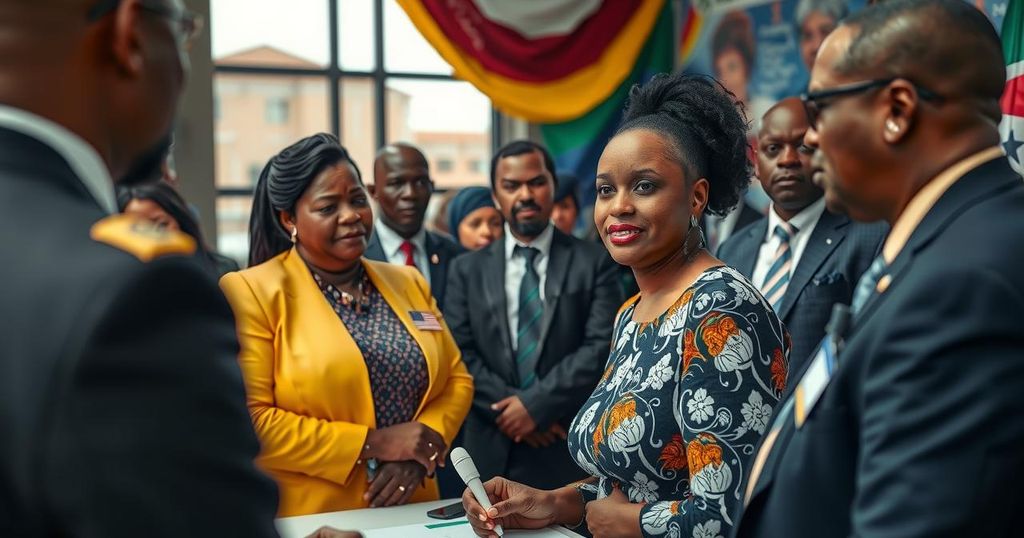Namibia’s Vice President Leads Presidential Election Amid Controversies

Vice President Netumbo Nandi-Ndaitwah is leading the results in Namibia’s presidential election amid significant voting irregularities. Opposition parties are contesting the election’s validity, citing technical issues that delayed the voting process. The Electoral Commission has refused calls for a rerun despite the complaints. The outcome could influence Namibia’s future political landscape as SWAPO faces increasing discontent among voters.
Namibia’s Vice President, Netumbo Nandi-Ndaitwah, representing the ruling South West Africa People’s Organization (SWAPO), is leading in the early results of the presidential election held on November 27, 2024. The election faced significant challenges, including technical glitches that prompted an extension of voting until November 30. Opposition parties have raised concerns, contesting the validity of the election results, which they deem undermined due to mismanagement. Nandi-Ndaitwah, a prominent figure in the nation’s independence movement, has secured approximately 56% of the votes counted thus far.
The electoral process has drawn criticism from opposition leaders, including Panduleni Itula of the Independent Patriots for Change, who follows with 27%. With a population of around 1.4 million voters, the election results are under scrutiny due to supply shortages of ballot papers and various administrative issues that compromised the integrity of the voting system. The local political landscape reflects growing discontent with SWAPO, especially among the youth facing high unemployment and economic difficulties.
Opposition parties are planning to file legal challenges against the election outcomes, emphasizing the need for a fair and democratic process. The leader of the Popular Democratic Movement, McHenry Venaani, underscored the significance of democracy, stating, “It is about our country, it’s about our democratic credentials, it’s about the country that must work for everybody, the poor and the rich.”
Despite tensions, the Electoral Commission of Namibia has declared that a rerun of the elections is not anticipated. This electoral crisis mirrors a regional trend of discontent with ruling parties, as seen in nearby countries experiencing similar shifts in political power.
As Namibia approaches the final results of its presidential election, the implications of this electoral integrity crisis may resonate beyond its borders, reflecting broader patterns of governance and citizen engagement across southern Africa.
Namibia is recognized for its stable political landscape and democratic processes since gaining independence from apartheid South Africa in 1990. However, the recent presidential election has been marred by technical difficulties, raising questions about electoral integrity. SWAPO has maintained political dominance since independence, but domestic issues such as high unemployment rates and government corruption have led to increasing frustration among the populace, particularly the youth. As opposition parties prepare to contest the election results through legal means, these challenges indicate a potential turning point in Namibia’s political history.
In summary, Namibia’s recent presidential election, led by Vice President Netumbo Nandi-Ndaitwah, has faced significant challenges that could undermine its credibility. The concerns raised by opposition parties, including plans for legal action, emphasize the importance of maintaining electoral integrity in a democratic society. The outcome of this election may set a precedent for future governance and citizen participation in Namibia. As the nation looks ahead to final results, the implications for SWAPO’s longstanding dominance remain uncertain as public sentiment continues to shift.
Original Source: apnews.com






